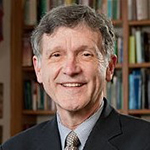By Bill Leonard
 “Our enemies act without conscience. We must not. This executive summary of the [Senate Intelligence] Committee’s report makes clear that acting without conscience isn’t necessary, it isn’t even helpful, in winning this strange and long war we’re fighting. We should be grateful to have that truth affirmed.”
“Our enemies act without conscience. We must not. This executive summary of the [Senate Intelligence] Committee’s report makes clear that acting without conscience isn’t necessary, it isn’t even helpful, in winning this strange and long war we’re fighting. We should be grateful to have that truth affirmed.”
That’s what Republican senator and former torture victim John McCain said on Dec. 9, 2014, after release of a report detailing CIA practice of “enhanced interrogation techniques” against detainees following the 9/11 tragedy. “Techniques” included waterboarding, sleep deprivation, shackling arms above prisoners’ heads for hours, naked plunges into ice baths, and something disturbingly named “rectal rehydration.” Debates over the politicization of the report were so divisive that they seemed to eclipse the techniques, themselves documented and not denied.
Nor was McCain’s the only right-of-center voice raised. In the Wall Street Journal, Peggy Noonan critiqued the political process, while noting of such torture reports: “A nation’s reputation in the world will not soon recover from such cruel, systemic actions, which seemed to bubble up from a culture. You’ll pay a price in terms of the world’s regard.”
McCain was even more articulate: “But in the end, torture’s failure to serve its intended purpose isn’t the main reason to oppose its use. I have often said, and will always maintain, that this question isn’t about our enemies; it’s about us. It’s about who we were, who we are and who we aspire to be. It’s about how we represent ourselves to the world. … Most of all, I know the use of torture compromises that which most distinguishes us from our enemies, our belief that all people, even captured enemies, possess basic human rights. …”
As 2014 ends, we are a nation confronted by conscience, divided over what it means and how to sustain it. Dictionary definitions call conscience “the complex of ethical and moral principles that controls or inhibits the actions or thoughts of an individual.” A superb essay from the “The Bonhoeffer Project,” Oct. 3, 2011, deepens the discussion: “Conscience is the awareness of oneself. It is our gaze turned inward for examination. … The conscience borrows from all other parts of the heart: the mind to assess, the emotions for guilt or satisfaction, and the desires to encourage good. Though it borrows from these parts, it is beyond all parts. Conscience is central to understanding who we are and who we need to be.”
In 2014, conscience haunts multiple fronts. At worship on Sunday, Dec. 14, our pastor, Reverend Darryl Aaron, entered the pulpit wearing an “I Can’t Breathe” T-shirt, reminding our congregation of the last words of African-American Eric Garner, dying under videoed chokeholds administered by a New York police officer. Pastor Aaron decided to address this issue for conscience’ sake after a black student at Wake Forest University asked him, “What do you have to say to me since some people think I look like a ‘thug’ and can therefore be killed?” “What can we tell our black sons?” Aaron asked himself and the congregation.
Those pressing questions were compounded when, on the way to Christmas break, Wake Forest University reported that Imam Khalid Griggs, Muslim chaplain, discovered a bucket of urine outside his office in the university’s central administration building. This indecency challenged the school’s collective image, mandating a communal “gaze turned inward” for faculty and students alike. Waterboards and urine pails may be the work of the few, but the consciences of the many are diminished nonetheless.
Face it, we all — nations, churches, families, individuals — cut deals with conscience across our lives. Yet recent cathartic events might lead us to certain systemic considerations:
• Moratoria on the ideas of “American exceptionalism” and moral superiority.
• Cessation of any pretense of being a “Christian nation.”
• Pursuit of genuine dialogue regarding the moral dilemmas that divide us.
• Exploring the boundaries of conscience, even when they collide.
• Cultivating unashamedly the wonder of conscience; how to sustain it in our broken lives and volatile world.
In Words from a Witness (1967), Elie Wiesel told of a rabbi whose conscience compelled him to declare: “‘Please do not be murderers, do not be thieves. Do not be silent and do not be indifferent.’ He went on preaching day after day, maybe even picketing. But no one listened. He was not discouraged. He went on preaching for years. Finally someone asked him, ‘Rabbi, why do you do that? Don’t you see it is no use?’ He said, ‘I know it is of no use, but I must. And I will tell you why: in the beginning I thought I had to protest and to shout in order to change them. I have given up this hope. Now I know I must picket and scream and shout so that they should not change me.’”
In 1521, Martin Luther looked the Holy Roman Emperor in the eye and declared “my conscience is captive to the Word of God.” Then he added: “Acting against one’s conscience is neither safe nor sound. God help me. Amen.” Luther nailed it, then and now. God help us every one. Amen.
